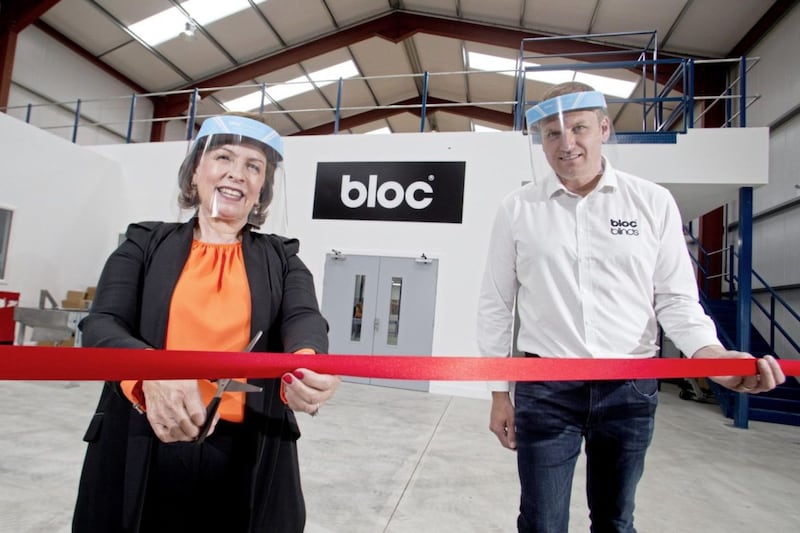A GREAT privilege of my job to be able to get past the factory gates and go see how and what our incredible manufacturing community make. None more so than last week when, after almost five months parked up at home in Derry, I had the chance to join economy minister Diane Dodds when she opened the new Bloc Blinds factory in Magherafelt established to make face shields for the NHS.
At the beginning of this public health crisis, Bloc repurposed inside one week to make their shields for front line workers, took over the local leisure centre and employed hundreds more local people. Their new partially automated production facility will help produce some 4.5m shields per week and was completed inside only 7 weeks.
This success is testimony of the great leadership of Cormac Diamond and his talented team.
But, as Cormac said to Minister Dodds at the opening, “we were only able to do this because we have a manufacturing sector... lose that and we put yourself at risk”.
And that is so true.
Their story of agility, ingenuity and entrepreneurship is replicated across our manufacturing sector.
Some of that was reflected in the latest “State of Manufacturing Report” we published alongside Tughans last week.
The report discovered that alongside those who repurposed to provide PPE, 35 per cent of our firms introduced new product lines and 25 per cent discovered new markets in response to the aggressive decline in our economy caused by Covid.
Sadly, much of the rest of what was uncovered makes for grim reading.
A year ago, one in eight firms reported that their business was in decline but this summer that has stretched out to some 42 per cent of firms. Two out of three reported a rapid contraction in domestic, GB and export markets with expectations for the rest of the year remaining bleak with 40 per cent of firms anticipating further decline across these markets.
Only one in three factories reported to be working at near capacity (80 per cent or more) with more expecting to see production reducing further in the next six months.
For the manufacturing economy at least, hopes of a ‘V shaped recovery’ for the economy looks to be ambitious.
Whilst wage costs continue to rise, the availability of labour and skills, once one of the biggest challenges faced, has almost overnight become one of the least worrying issues for our firms. Sadly as we begin to see redundancies announced there will be a much larger pool of labour available and likely a dampening of wage inflation.
And whilst the concerns about Brexit have eased due to the Brexit divorce agreement and Protocol, down from 76 per cent to 65 per cent, the survey shows that our firms have neither the cash, capacity nor capability to deal with a messy implementation of the NI Protocol or the UK and EU failing to agree their future relationship.
Only 5 per cent believed they were fully prepared and whilst it is some relief that almost half have made some preparation, even now 39 per cent of firms have still to make any preparation.
It is clear that a deal and more detail is required and a responsibility of the UK Government to step up and take on the costs of customs and documentation. This will be one of our biggest asks of the UK government in the coming weeks.
Our manufacturers have proven to be creative and resilient in some of our darkest economic days. As Cormac Diamond said, we are lucky to have them. We may rely on them again this autumn so everything needs to be done to protect them in the coming months. That must start with the Executive immediately releasing, as promised, some of the £53m underspend in their Covid grants to those firms who really need their help.
Our makers may be currently in retreat, but they can march again. Lose them now and we may well come to regret it.
:: Stephen Kelly (stephenkelly@manufacturingni.org) is chief executive of Manufacturing NI (http://www.manufacturingni.org)



